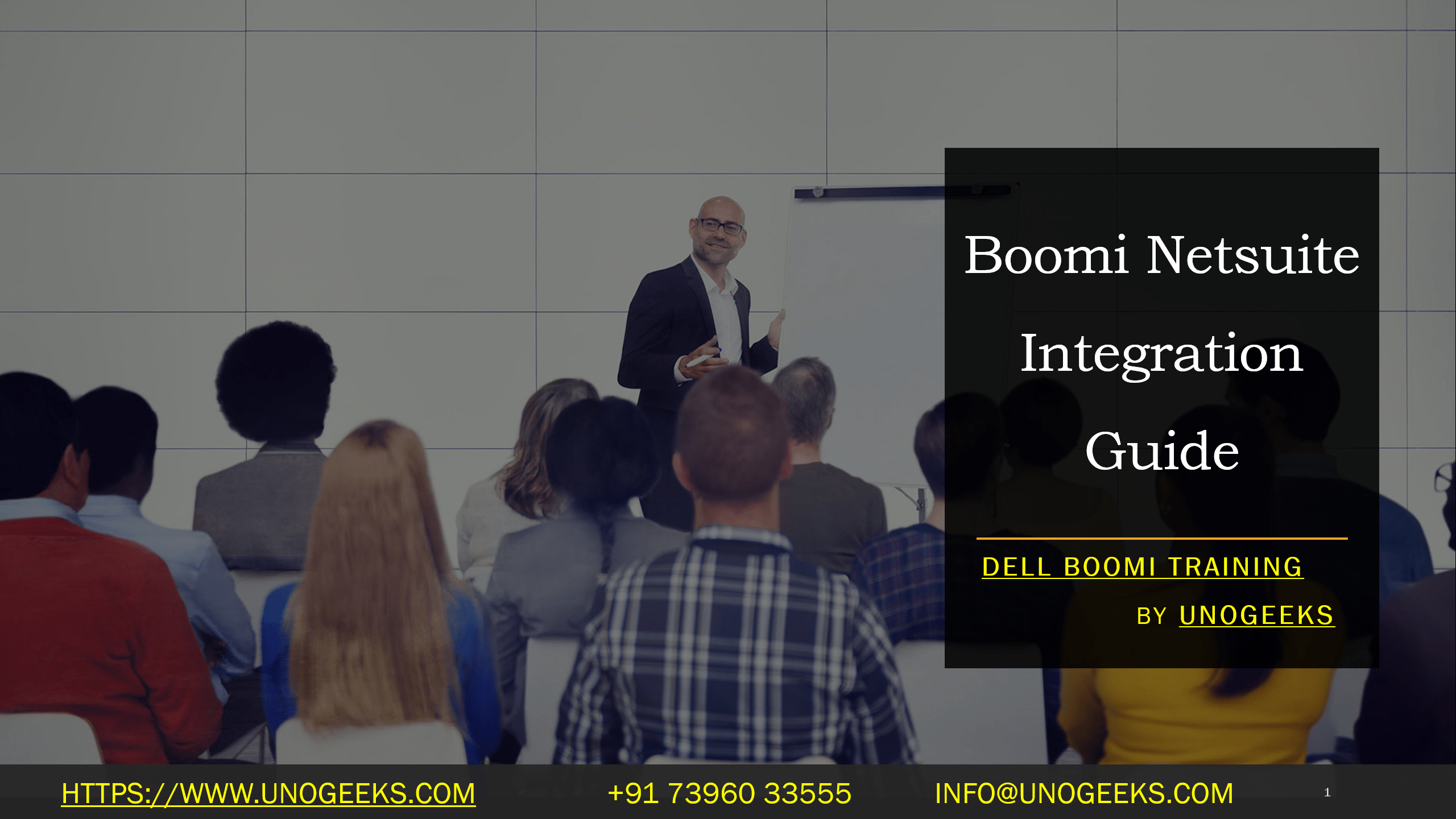Boomi Netsuite Integration Guide
Boomi-NetSuite Integration: A Simplified Guide
NetSuite is a robust cloud-based ERP (Enterprise Resource Planning) system widely used for managing business processes. At the same time, Boomi is a leading iPaaS (Integration Platform as a Service) that simplifies connecting disparate systems and applications. Integrating these two platforms unlocks significant efficiency gains and data streamlining across your organization.
Why Integrate Boomi and NetSuite?
- Centralized Data: Establish NetSuite as your central source of truth, syncing customer information, orders, inventory levels, and financial records with other critical systems.
- Automation: Automate workflows across NetSuite and connected applications (CRM, eCommerce platforms, etc.) to eliminate manual data entry and reduce errors.
- Real-time Visibility: Get up-to-date insights across your business via dashboards and reports that leverage integrated data.
- Improved Decision-Making: Make informed decisions based on a complete, cross-system view of your operations.
Steps for Successful Boomi-NetSuite Integration
- Planning and Requirements Gathering
- Identify Use Cases: Determine the most beneficial ways to integrate the systems. Common scenarios include:
- Order-to-Cash
- Customer Data Synchronization
- Inventory Management
- Financial Reporting
- Define Data Flows: Decide which data needs to move, in what direction (between NetSuite and other systems), and any required transformations.
- Security: Address authentication, access control, and data encryption to ensure secure integration.
- Boomi Setup
- Create a Boomi account: If you don’t have one, sign up for a Boomi trial or subscription.
- Install the Boomi NetSuite Connector: This pre-built connector simplifies the integration process.
- NetSuite Configuration
- Set Up Integrations: Create any necessary web services or custom records within NetSuite to interact with Boomi.
- User Roles and Permissions: Establish an integration user in NetSuite with the appropriate permissions to access and modify the desired data.
- Obtain Credentials: Collect your NetSuite account ID, authentication tokens, or user credentials for the connector.
- Boomi Process Design
- Create Integration Processes: Use Boomi’s visual drag-and-drop interface to design your integration processes. Key components typically include:
- Connectors: Start with the NetSuite connector and add other relevant connectors.
- Maps: Define how data fields from NetSuite correspond to those in other systems.
- Logic and Transformations: If needed, include rules for data manipulation or decision-making.
- Error Handling: Build robust error handling to catch and resolve issues gracefully.
- Testing and Deployment
- Thorough Testing: Use test data to validate all integration scenarios and ensure accurate data flows.
- Deployment: Once testing is successful, deploy your integration processes to a production Boomi environment.
Best Practices
- Start with Small, High-Value Integrations: To learn the tools and demonstrate success, focus on a few key use cases initially.
- Embrace Iterative Development: Build incrementally, adding complexity over time.
- Prioritize Data Mapping: Accurate data mapping is critical; invest adequate time.
- Leverage Boomi Community: Access Boomi’s resources and the community for support.
Example Use Case: Order-to-Cash with Boomi
- The customer places an order on a website (e.g., Shopify).
- Boomi process picks up the order information.
- Boomi creates or updates a sales order in NetSuite.
- NetSuite handles fulfillment and invoicing.
- Boomi updates the order status and sends it back to the website.
Conclusion:
Unogeeks is the No.1 IT Training Institute for Dell Boomi Training. Anyone Disagree? Please drop in a comment
You can check out our other latest blogs on Dell Boomi here – Dell Boomi Blogs
You can check out our Best In Class Dell Boomi Details here – Dell Boomi Training
Follow & Connect with us:
———————————-
For Training inquiries:
Call/Whatsapp: +91 73960 33555
Mail us at: info@unogeeks.com
Our Website ➜ https://unogeeks.com
Follow us:
Instagram: https://www.instagram.com/unogeeks
Facebook: https://www.facebook.com/UnogeeksSoftwareTrainingInstitute
Twitter: https://twitter.com/unogeek
